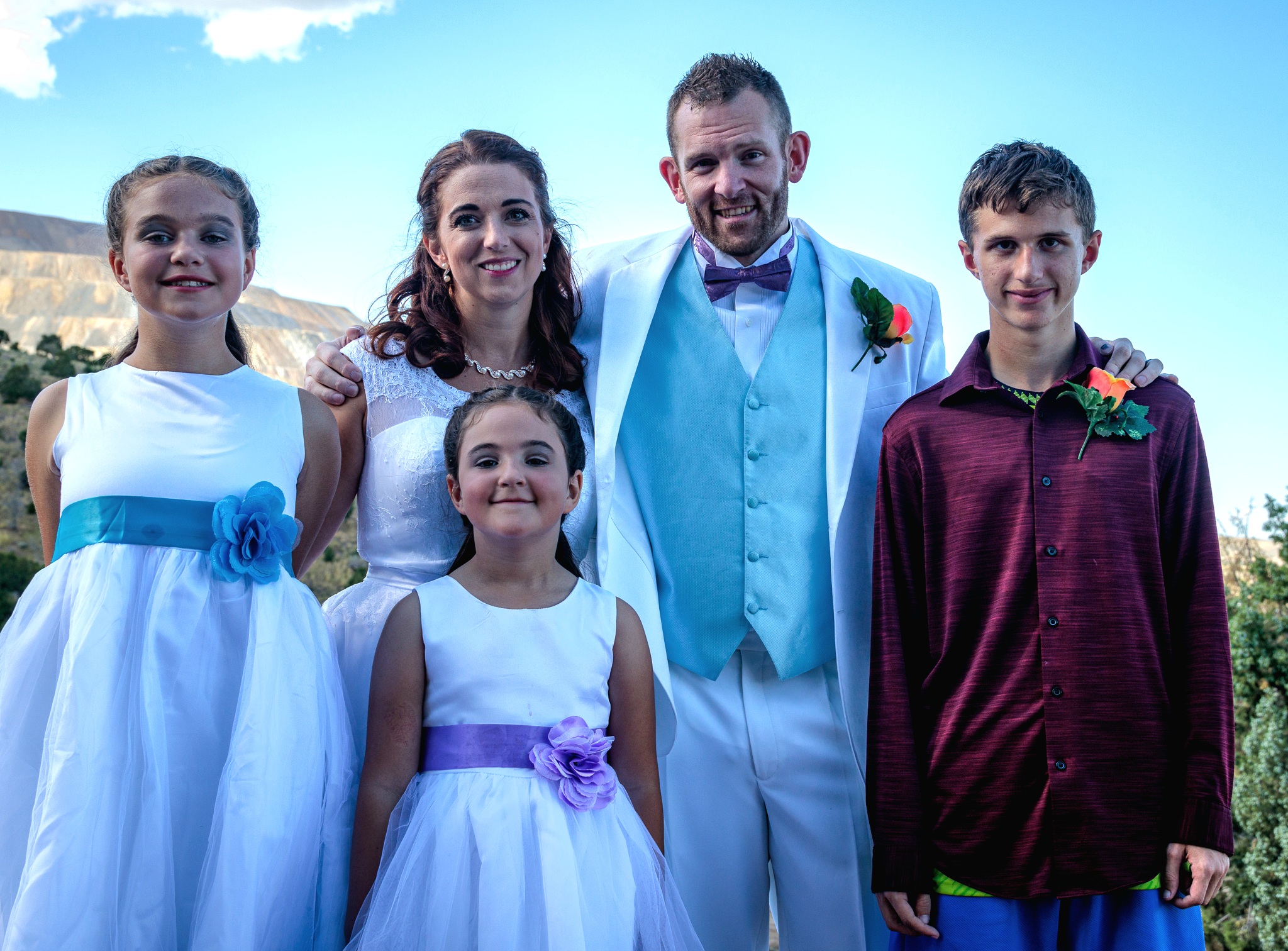
Amanda hopes her cancer journey is a positive example for her kids
April 22, 2024
This is a guest post by Amanda Reitz, a mother of three children who were 13, 9, and 5 years…
Read More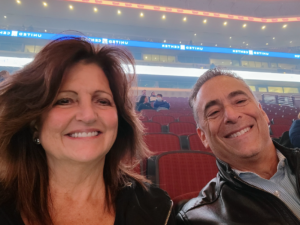
This is a guest post by Joel Stern, who was diagnosed with stage IV renal cell carcinoma in 2020. This is the second in a two-part series, in which Joel discusses what he learned through his kidney cancer journey. Read part one: I have stage IV renal cell carcinoma and I’m surprisingly content
After a stage IV clear cell renal cell carcinoma (RCC) diagnosis in 2020, I have learned more about myself than I learned in my first 62 years. A lot of it has been very challenging, but also rewarding. I have always said that when you stop growing, it’s time to die. Based on what I have learned recently and what I still need to understand, I should have many years left. The following are some of the lessons I have learned from dealing with this disease the past 11 months. I share in the hopes that you will learn from me and then share with others with your own thoughts and suggestions.
Trust Me – The Stages of Dealing with Cancer Are Real
When I received the first phone call from the orthopedic surgeon giving me the dire news, I was in complete shock and denial (stage 1). I refused to believe he was referring to me when he said, “consult with an oncologist ASAP.” That shock quickly turned to anger (stage 2). I’m happy I never asked, “why me?” because I could have just as easily asked “why not me?” But I was so angry that this was happening to me just as I’m about to retire and enjoy my next forty years of life. I then seamlessly moved into the bargaining stage (stage 3): “God – give me twenty more years and I’ll be a better person,” I softly said at least 50 times a day. I then went into the worst stage of cancer, sadness and depression (stage 4). I was certain I wasn’t going to see my grandson Aidan Joel turn four. I thought I’d never take another vacation again. I would never see my beloved Cleveland Browns compete for an NFL Championship, my appetite would disappear, and my last piece of Lou Malnatis deep dish pizza was days away… the list goes on. I thank my entire family for putting up with my pity party stage.
Sometime in March, I woke up one day and transitioned into the acceptance stage (stage 5). I accepted the challenge to be a Warrior and fight this disease and started getting optimistic that I had some good moments left in me. While I continue to be in the “let’s beat the shit out of this cancer” stage, I would be lying if I didn’t tell you that I still have anxiety, sadness, and moments of loneliness… but they don’t rule me now and for that I am thankful.
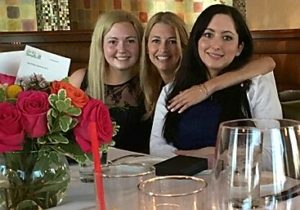
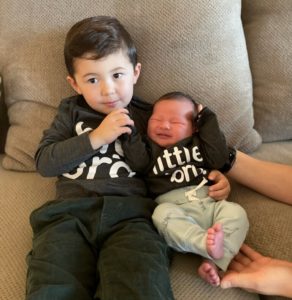
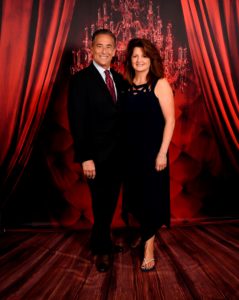
Surprise, My Fear of Death Phobia Is Gone
From a very early age, I have had a phobia with death. I’m certain my mother’s cancer and early death increased my anxiety. I just love life so much and don’t want it to end. I’m happy vacationing, playing tennis, watching football, reading a book, or having a nice meal. I find enjoyment in almost everything I do.
You would think once I got this diagnosis, my fear of death would increase materially, that I would be consumed by it. And this is indeed what happened… at first. But once I got to the acceptance stage, my fear of death surprisingly decreased. More than ever before, I appreciate that the minute you are born, the process of dying begins, and the only difference between me and the healthy guy next door is that I have some obstacles to get over more than he does. I can’t control my death, but I can control what I do with my life. That is my focus, and it feels quite cathartic.
Understand That Statistics Are Just Numbers
The first task most cancer survivors and loved ones do once they get the bad news is internet searches on life expectancy with the form of cancer they have. Our medical teams tell us not to do it—and for good reason, as it’s hard to sift through the search results and know what’s reliable and valid—but we can’t help ourselves.
In 1965, my mother was diagnosed with breast cancer that had, unfortunately, spread. Many years later, I reviewed her medical file and noted that the doctors gave her six months to live. I was seven years old at the time of her diagnosis. She lived until 1980. I’m glad she didn’t review that file. I’m certain it was based on statistics. I am blessed I was 21 when she died and had so many great experiences with her during that time. The point is that stats are just numbers and numbers do not necessarily tell the complete story. They can’t measure so many factors that are at play with this disease and even if my chances of living five years are statistically 20 percent, I remain optimistic that I have a good chance to live more than five years. I will not allow numbers to dictate my life.
Selecting the Right Medical Team Is Critical
One of the most important decisions people with cancer face is finding the right medical team. My oncologist is smart, calm, empathetic, honest, disarming, transparent, and reassuring. He is optimistic but not unrealistic. He stressed that there were several options to consider. He was from the ‘burbs of Chicago close to where I lived but had access to all the doctors in his affiliated network, including downtown Chicago. I see him every couple of months and see his assistants in the months in between. He truly is the captain of my ship. I tell anyone who has a complex illness where there will be differences of opinion on treatment, that it’s important to make certain one doctor (of your choice) is the captain of the ship and serves to reconcile different opinions.
You also must be a self-advocate. Ask questions, challenge your doctor, seek second and third opinions if the decisions are hard. You have a right to demand high-quality services. In addition to being your best advocate, you should also have someone in your family or group of select friends to be an advocate for you as well, in cases where you are not up to it.
Dealing with Insurance Companies
My father gave me lots of great advice, none better than telling me to never skimp on insurance—especially health insurance. I am thankful I have always had very good medical insurance that has not only handled my illnesses, but my wife’s ruptured brain aneurysm in 2007. He didn’t tell me, however, that there will be times in your life when the insurance companies act as barriers to getting the treatment for reasons that I (and I’m sure others) don’t understand. Have your medical team seek approval while you make calls as well. Second, if they refuse, ask your medical team to appeal, and you should do the same. If all else fails, many of the pharma companies providing the very expensive treatments will provide medicines for free or greatly discounted rates if need is shown. Don’t let the insurance companies dictate the medical treatment you should have.
Dealing With Side Effects
There are so many potential side effects associated with my immunotherapy. The key is to inform your medical team whenever something changes in your body. They need to be informed and help keep all the meds working in concert.
Palliative Care is Not Hospice
I still shudder every time I think about the first time I saw the phrase “palliative care” in my file. I thought it was the equivalent of hospice, which I knew wasn’t something I wanted to see in my chart. I wish someone had explained to me exactly what palliative care is—and what it isn’t—before I saw it in my file.
Palliative care is focused on providing relief from the symptoms and stress of the illness. The goal is to improve quality of life for both the patient and their family. It is appropriate at any age and at any stage in a serious illness, and it can be provided along with curative treatment. I have received so many benefits from the social workers, nurses, and physician’s assistants who address issues beyond treatment of the disease. What I have come to understand through palliative care is that, while there is no cure for people like me who have Stage IV RCC, there are opportunities to live a quality life for months if not years.
Learn to Live in the Moment and Be Mindful
My mind is always running 100 miles per hour, and I work best when I am multi-tasking several different challenges. I am a solution finder who is only satisfied when I get to an answer that works. Getting this diagnosis is challenging for people like me because we spend inordinate amounts of time looking into the future and thinking about getting sicker, being bedridden and dying. We can’t find a solution to our terminal illness, and that is bothersome. I knew I couldn’t get into the acceptance stage of my disease until I figured out how to chill out a bit, to become less strategic and more day to day.
My palliative care team helped me focus on living in the moment. What am I going to do today versus where will I be two years from now? They also helped me with being more mindful, which is the basic human ability to be fully present, aware of where we are and what we are doing, and to not be overly reactive and overwhelmed by what’s going on around us. This has helped me focus on things I never focused on and finding beauty and enjoyment in it. Blue skies, deer in the front yard, deep dish pizza with friends, watching football, playing tennis, and spending time with my family are all examples of things I have always enjoyed, but I enjoy it differently today than I did before. I have a much greater appreciation for the little things that I may have overlooked in the past and am so very mindful of never taking any positive thing for granted. It has helped me so much in coping with this disease.
Develop a Marathon Versus Sprint Attitude
To best deal with this disease, you must learn patience and develop a marathon-versus-sprint perspective. Those who know me know that patience is not exactly a virtue I possess. But, like the best marathon runners, I would need to fight hard to get past the parts of the race where I just wanted to quit, I’d have to find the strength to move to the next mile. I have had my share of ups and downs and am certain they will continue, but now that I understand this is truly a marathon, I am better positioned to season the obstacles that have and will continue to come my way.
Find a Community on Facebook Where You Can Learn from, Comfort, and Share with Each Other
I was a very late joiner to Facebook. However, I found the most incredible Facebook private group: Stage IV Renal Cell Carcinoma, a group where everyone either has my disease or is a loved one of someone who does. It is a place to share, to learn from and comfort each other. It’s a place where we can safely ask questions of others and get their perspective. It’s a place where we can vent, complain, and bitch and people don’t judge. I also have found that it is cathartic for me to write on this Facebook group and share my stories and perspectives.
Dealing With the Financial Toxicity of Cancer
I am privileged to be in a financial situation that isn’t adversely affected by the cancer I have. However, there are so many people who are not only dealing with cancer, but the costs of dealing with cancer. I don’t have a panacea to this problem, but we must better address the issue of financial toxicity of dealing with cancer, so all people get the medical advice they need, have finances to sustain their family, and are able to live a life with dignity and hope. New Day Foundation (foundationforfamilies.org) is an incredible non-profit based in Michigan. They help families address the financial issues of handling cancer. This includes both the costs of health care but also the other costs of dealing with cancer—food, housing, work, financial assistance. I know there are many great organizations in the United States that are dedicated to this mission, and we need to better educate families what they are and what they do.
Focus On Experiences Versus Material Objects
I now value experiences so much more than material objects. One week after my diagnosis, I planned a trip with my entire family to Marco Island, Florida, nine months in the future. At the time, I assumed I’d be too frail to go or enjoy or even worse, dead (I was in the anger stage at that time). But it’s nine months later, we just returned from that trip, and I’m happy to say it was one of our best trips ever. We had so much fun on the beach, walking, playing in the water, going to restaurants, laughing, and just enjoying the experience. I know my family treasures these memories as much as I do.
Having a Strong Support Network Is Critical
I don’t know where I’d be without having the incredible support network that I have. First, my wife Donna has been amazing. I am indebted to her forever. Next up are my three daughters, who I adore: Brittany, Amanda, and Taylor. And what can I say about my grandson Aidan Joel Moy? He’s now three-and-a-half and he is precious. I love every minute I get to spend with him. Being a grandparent to Aidan is one of the primary reasons I’m going to fight. I want to see him grown, and I want to see my future grandchildren grow and become part of our family.
In addition to family, my support network includes friends from all walks of my life. Finally, the Facebook site with my virtual friends who share a common Stage IV RCC bond. They are truly Warriors. Having a few people who have your back is critical in battling this disease. If you don’t have that network, get it. It is a material factor in helping us live longer and better… this is true for healthy people as well.
It’s also important to give back. I love mentoring others who are going through this disease or helping advocates understand how critical their role is. I am an Imerman Angel where I help people who are diagnosed with a similar disease in a mentor role. I give of myself on the Stage IV RCC Facebook group daily. Now, it’s not completely altruistic on my part because it gives my life meaning and makes me feel good about myself. It’s the proverbial win-win.
The Right Attitude is Critical in Fighting this Disease
Having the right attitude is critical to successfully fighting this disease or any other disease. Now, don’t get me wrong—there are times when I am still scared to death and pessimistic about my future, but those times are drowned out by my overall healthy and positive attitude. If you can’t get there once you go through the stages of dealing with this disease, please get help from your family and friend or your medical team, including the use of social workers and psychologists. It’s never too late to find the courage to be optimistic and have hope.
Teach Your Children Well: The Lessons My Mother Taught Me
Thanks, Mom, for all the lessons you taught me that I didn’t appreciate until years after your death. In 1965, when I was 7 years old, my mother was diagnosed with breast cancer. Except for the last few months of her life, she had a will to live and a passion for life. I am truly blessed that I was 21 instead of 7 and had all those years of memories that continue to shine a huge light on her. There is no one in my lifetime that constantly showed the courage and determination to live a quality and fulfilling life, under extremely challenging circumstances, then my mother. She found joy, happiness, and love every day. Now that I am facing this battle, all the memories of her are coming back and her incredible legacy lives inside of me and creates a fire in my belly. I want to instill that same courage and love of life to my children, grandchildren, and friends. I hope that a little piece of me remains in their lives way after I’m not around, just like my mother left her legacy on me and so many others.
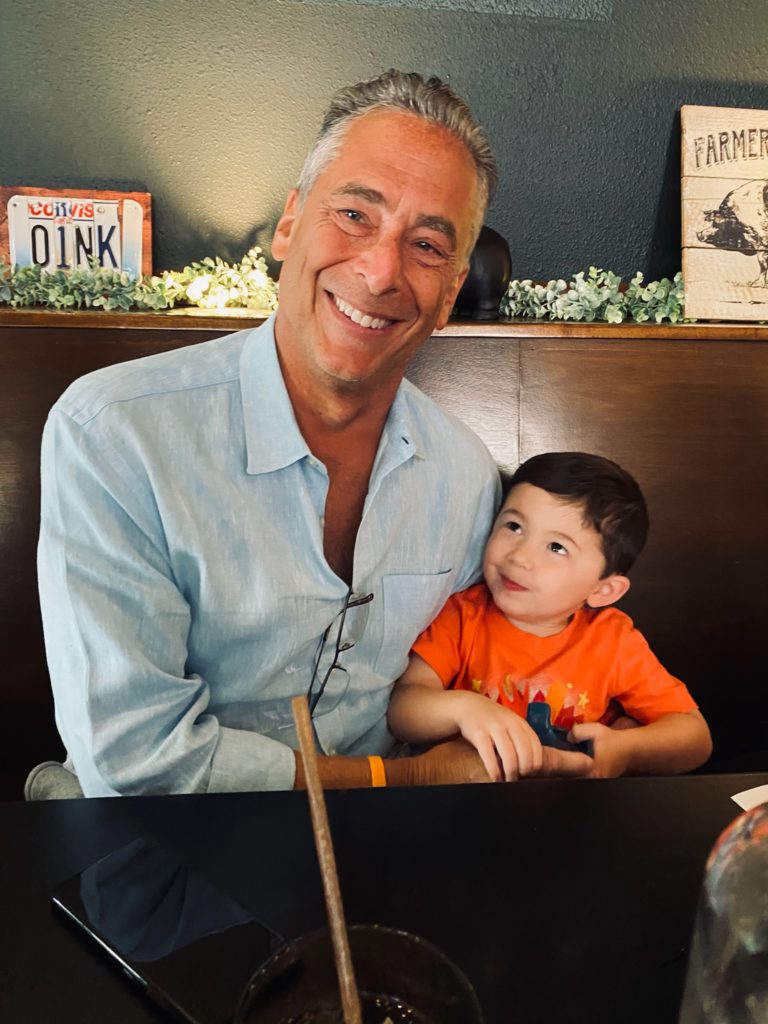
Addressing Your Legacy
With this diagnosis, legacy becomes even more important to me. I want people to have wonderful memories of me and be better because of it. I want them to do something in their lives that is directly or indirectly attributable to something I did or said. I want people to see that I am dealing with this cancer in a mature, pragmatic way and enjoyed many days, months, and maybe years with stage IV cancer. If I don’t last that long, I want them to know I left this place with dignity and courage. I know not everyone feels this way but it’s the way I feel. When my brother Mitchell died in 2001 of a brain aneurysm, I was one of several that spoke at his memorial. I don’t have the notes from that eulogy, but I do remember the gist of it. “Take something from my brother that touched you and make it part of your life. It could have been his smile, his unique humor, his warm personality—it can be anything. And, when you use that in the future, think about where it came from, and you will always remember my brother and what he meant to you.” I ask my loved ones and friends to do the same for me. If that happens, when my life ends, I continue to make a positive impact on the lives of others.
Life is Precious and Way Too Short
The message is to enjoy every minute of your life. I have been saying that for more than 25 years, and in a strange way it seems fortuitous that those words take on the importance they do post cancer diagnosis. It’s the message I would implore all of you, both heathy and not, to live and breathe. We don’t control how long we will live, but we do control what we are going to do with our lives. No one can wrest that control away from me and I plan on using that control to live my life the way I am doing.
The Future
From the day we are born, we begin the process of dying. With my cancer diagnosis, nothing changes, except I have more obstacles I am confronted with now. As Paul Kalanithi said in his book: When Breath Becomes Air: “I knew two things for certain before my cancer diagnosis. I am going to die sometime, and I don’t know when. Now that I have cancer, I know two things for certain. I am going to die sometime, and I don’t know when.” That one quote, from a young man with a terminal illness, was an epiphany for me and I think about it daily.
What I do know is that I’m going to enjoy every moment of my life with my family and friends and take nothing for granted while enjoying all the amazing things that are out there for me. I will be a better person and more accepting of others. I will seek the good in people rather than looking for warts. I will share my message of optimism with whomever will listen. I will be thankful every day for the enjoyment I have in life. I will make memories that will be my legacy. I will dream and aspire to make my dreams come true. I am more content with myself than I have ever been. That is my silver lining with this horrible disease. While it may seem to be an oxymoron, I have stage IV RCC but I am happy and content with my life.
Joel Stern lives in Kildeer, Illinois. He is retired but previously held several senior in-house legal positions and was most recently the CEO of the National Association of Minority and Women Owned Law Firms. Joel has been married to his wife Donna for more than 34 years and has three amazing daughters and two grandchildren.
19 thoughts on “Lessons learned from stage IV renal cell carcinoma”
Incredible! Thank you for so eloquently stating what I have not been able to. So much of what you write, I have been through, thought hard about and journaled, but your essay is so good and so inspiring, I’m going to print it and refer to it regularly. One thing is for sure – I do awake each morning and give thanks that I have been blessed with another day on earth- to enjoy my family, to immerse myself in the natural beauty and healing powers of nature, and to live out my life. Thank you, Joel.
Thank you Nancy and I’m happy you got something out of it. If you are interested in the FB site I am on for people dealing with Stage IV RCC, just send me an email at [email protected]. Stay strong Warrior. You inspire me as well.
Thank you Nancy. I appreciate the kind words and also wish you many many more great life experiences as we battle through this. I also love your perspective on feeling blessed every day we have on this earth – I feel the same way. If you need anything, feel free to reach out.
This was amazing to read. Thank you for sharing and providing the positive outlook in Having Renal Cell Carcinoma. I was diagnosed with Stage 1 Grade 2 RCC in September of this year. Your story will forever inspire me to be better mentally. Thank you Joel.
Thank you Rick. I appreciate it. Let’s keep your Kidney cancer from getting anywhere near Stage 2-4. Stay vigilant and get those scans periodically. If you need anything, I’m pretty easy to find. Happy Holidays to you!!!
Thanks you for sharing. You’re an amazing person. The first time we ever spoke I was inspired by your passion for diversity and how moving the needle just a little would have impact and ripple effects. You took on the challenge of driving that change into the legal profession and you made a difference. Thank you.
Thank you Gregg. I truly appreciate it. I hope you are doing well and let me know if you need anything!
God Bless you Joel! I will remember you and your family in my prayers.
With your wonderful outlook on life, I have no doubt that you will be sharing your special talents and outlook on life for many years to come.
Thank you so much Kevin. I appreciate the very kind words. I wish you a very Happy Holiday season and a healthy (at least relatively so) 2022.
Joel, you have always been inspiration in your career and now I can see that you are inspirational in your life. Wishing you a very happy New Year!
Thank you so much Mary. I appreciate it.
Thanks to my good friend who I admire and consider all of your opinion’s thoughts and strengths who helps me get through the toughest times as my husband is battling stage 4 renal cell.. very smart man some one has to have the brains ! Thanks Joel for always listening and caring
My thoughts and prayers continue to be with you and your husband Tammy. Thanks for being his advocate. Your role is so critical. Stay strong and reach out if you need anything! Joel
Great blog post Joel! A lot of your lessons learned / experiences are similar to what I experienced over the past 3 1/2 years since my stage 3 diagnosis, 2 recurrences and a good bit of time for reflection and getting used to a new normal life with cancer. Thank you for sharing and putting yourself out there to help others!
Thank you Sean. I appreciate it. I’m going to read yours tonight. Stay Strong!!!!
Joel thank you so much for doing what you are doing. During a time of confusion and enormous fear, after my husbands Stage lV Mets kidney diagnosis; you were the first person to respond to my question in our Kidney Cancer support group. You calmed the storm in my head and eloquently gave your opinion on my question. At that moment, you helped my understand I was not alone. I appreciate you being transparent and sending positive vibes through your posts. Godspeed to you and your family!
Hi Vee – thank you so much for the very kind note. You are not alone and there are so many willing to help. Please let me know if there is anything I can do for you. I’m giving a virtual presentation on my Journey in May that I understand is at no cost to watch. You are obviously welcome. Scans this Tuesday (2/22/22 at 2:00pm). Is that a good sign? I hope so but no matter, we keep climbing the mountain.
Joel, what a great piece. I am never at a loss for words, I can figure out anything, I am smart “but” when my husband was diagnosed with Stage IV Mets RCC, I was lost with no answers. During a time of confusion and enormous fear, Joel- you were the first person to share your opinion on my post in our Facebook group. You made me feel supported and comforted at a very low point in my life. Never Stop encouraging, being positive, inspiring others and knocking things off of your list. None of what you are doing is being done in vein. I appreciate you and thank you. Godspeed to you and your family
Thank you again Vee. Thoughts and prayers with you and your husband – both Warriors!